Peter Guralnick is an American music critic, author, and screenwriter. He specializes in the history of early rock and roll and has written books on Elvis Presley, Sam Phillips, and Sam Cooke.

The Rolling Stones are an English rock band formed in London in 1962. Active for over six decades, they are one of the most popular and enduring bands of the rock era. In the early 1960s, the band pioneered the gritty, rhythmically driven sound that came to define hard rock. Their first stable line-up consisted of vocalist Mick Jagger, guitarist Keith Richards, multi-instrumentalist Brian Jones, bassist Bill Wyman, and drummer Charlie Watts. During their early years, Jones was the primary leader. Andrew Loog Oldham became their manager in 1963 and encouraged them to write their own songs. The Jagger–Richards partnership soon became the band's primary songwriting and creative force.

Keith Richards is an English musician, songwriter, singer and record producer who is an original member, guitarist, secondary vocalist, and co-principal songwriter of the Rolling Stones. His songwriting partnership with the band's lead vocalist Mick Jagger is one of the most successful in history. His career spans over six decades, and his guitar playing style has been a trademark of the Rolling Stones throughout the band's career. Richards gained press notoriety for his romantic involvements and illicit drug use, and he was often portrayed as a countercultural figure. First professionally known as Keith Richard, by the early 1970s he had fully asserted his family name.

Winfield Scott Moore III was an American guitarist who formed The Blue Moon Boys in 1954, Elvis Presley's backing band. He was studio and touring guitarist for Presley between 1954 and 1968.
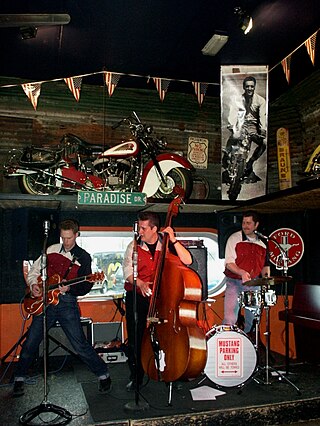
Rockabilly is one of the earliest styles of rock and roll music. It dates back to the early 1950s in the United States, especially the South. As a genre, it blends the sound of Western musical styles such as country with that of rhythm and blues, leading to what is considered "classic" rock and roll. Some have also described it as a blend of bluegrass with rock and roll. The term "rockabilly" itself is a portmanteau of "rock" and "hillbilly", the latter a reference to the country music that contributed strongly to the style. Other important influences on rockabilly include western swing, boogie-woogie, jump blues, and electric blues.
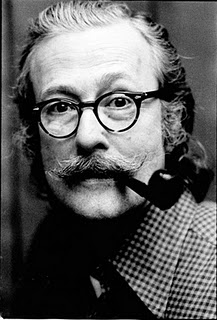
Ralph Joseph Gleason was an American music critic and columnist. He contributed for many years to the San Francisco Chronicle, was a founding editor of Rolling Stone magazine, and cofounder of the Monterey Jazz Festival. A pioneering jazz and rock critic, he helped the San Francisco Chronicle transition into the rock era.

James Luther Dickinson was an American record producer, pianist, and singer who fronted, among others, the band Mud Boy and the Neutrons, based in Memphis, Tennessee.

"Hound Dog" is a twelve-bar blues song written by Jerry Leiber and Mike Stoller. Recorded originally by Big Mama Thornton on August 13, 1952, in Los Angeles and released by Peacock Records in late February 1953, "Hound Dog" was Thornton's only hit record, selling over 500,000 copies, spending 14 weeks in the R&B charts, including seven weeks at number one. Thornton's recording of "Hound Dog" is listed as one of the Rock and Roll Hall of Fame's "500 Songs That Shaped Rock and Roll", ranked at 318 in the 2021 iteration of Rolling Stone's 500 Greatest Songs of All Time and was inducted into the Grammy Hall of Fame in February 2013.

The Sun Sessions is a compilation album by American singer Elvis Presley, issued by RCA Records in 1976. The album contains Presley's earliest commercial recordings, made in Memphis, Tennessee, for Sun Records in 1954 and 1955. RCA issued the album in the UK in 1975 under the title The Sun Collection. The album features liner notes by Roy Carr of the New Musical Express. The Sun Sessions features most of the tracks Elvis recorded for Sun Records and produced by Sam Phillips, the head of Sun Studios. The Sun Sessions reached number two on the Billboard Country Albums and number 1 on the Cashbox Country Albums charts.

Walter E. "Furry" Lewis was an American country blues guitarist and songwriter from Memphis, Tennessee. He was one of the earliest of the blues musicians active in the 1920s to be brought out of retirement and given new opportunities to record during the folk blues revival of the 1960s.
Robert Franklin Palmer Jr. was an American writer, musicologist, clarinetist, saxophonist, and blues producer. He is best known for his non-fictional writing on the field of music; his work as a music journalist for The New York Times and Rolling Stone magazine; his production work for blues recordings ; and his clarinet playing as a member of the 1960s jazz band the Insect Trust.
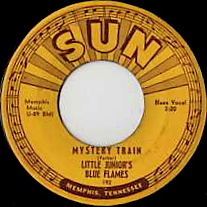
"Mystery Train" is a song written and recorded by American blues musician Junior Parker in 1953. Originally performed in the style of a Memphis blues or rhythm and blues tune, it was inspired by earlier songs and later became a popular rockabilly song, as first covered by Elvis Presley, then numerous others.
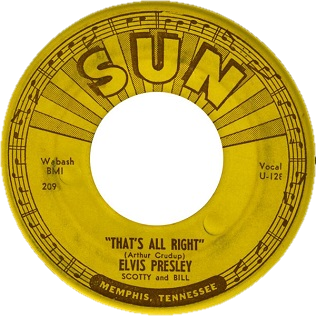
"That's All Right" is a song written and originally performed by the American blues singer Arthur Crudup, and recorded in 1946. It was rereleased in early March 1949 by RCA Victor under the title "That's All Right, Mama", which was issued as RCA's first rhythm and blues record on its new 45 rpm single format.

Talk Is Cheap is the debut solo album by English musician Keith Richards, the guitarist of the Rolling Stones, released in 1988. Recorded and released during a long-standing falling out with Mick Jagger, Talk Is Cheap received positive reviews upon its release.

Robert Timothy Wilkins was an American country blues guitarist and vocalist, of African-American and Cherokee descent. His distinction was his versatility: he could play ragtime, blues, minstrel songs, and gospel music with equal facility.
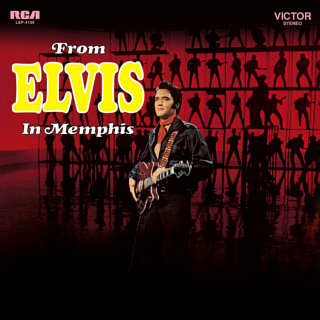
From Elvis in Memphis is the ninth studio album by American rock and roll singer Elvis Presley. It was released by RCA Records on June 2, 1969. It was recorded at American Sound Studio in Memphis in January and February 1969 under the direction of producer Chips Moman and backed by its house band, informally known as the Memphis Boys. Following the success of Presley's TV special Elvis and its soundtrack, the album marked Presley's return to non-soundtrack albums after the completion of his film contract with Metro-Goldwyn-Mayer (MGM).
C. C. Adcock is an American singer, songwriter, guitarist and blues rock musician, noted for his cajun, zydeco, electric blues and swamp pop-influenced sound and for his efforts to preserve and promote swamp pop music. He is also a Grammy-nominated music producer and film and TV composer.
Robert Greenfield is an American author, journalist and screenwriter.
"You Gotta Move" is a traditional African-American spiritual song. Since the 1940s, the song has been recorded by a variety of gospel musicians, usually as "You Got to Move" or "You've Got to Move". It was later popularized with blues and blues rock secular adaptations by Mississippi Fred McDowell and the Rolling Stones.
The Mojo Triangle, a geographical and cultural area located within a triangular connection between New Orleans, Nashville and Memphis, is the birthplace of country, blues, jazz, and rock and roll. The Mojo Triangle has creative artists, not just in music, but also in literature and films.













